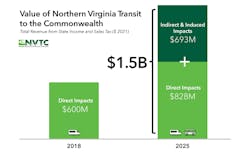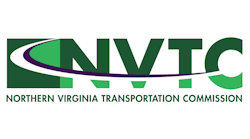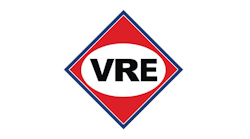A new study estimates transit generates $1.5 billion in personal income and sales tax revenue in northern Virginia, which includes $828 million in direct impacts and $693 million in indirect and induced impacts. Further, the study estimates $1 billion of the total can be attributed to Washington Metropolitan Area Transit Authority’s (WMATA) Metrorail system.
The Northern Virginia Transportation Commission’s (NVTC) “The Value of Northern Virginia Transit to the Commonwealth,” builds on the commission’s 2018 study but includes northern Virginia’s bus systems in addition to WMATA’s Metrorail system and Virginia Railway Express.
Northern Virginia accounts for more than 40 percent of the commonwealth’s Gross State Product and one in every three jobs in Virginia is located in the region.
Zooming out to the greater commonwealth, the study determined that every dollar Virginia invests in transit generates an additional $1.60 in statewide revenues that can be spent on other programs.
“NVTC's 'Value of Northern Virginia's Transit Network to the Commonwealth Study' attests to the unparalleled importance of Metro, Virginia Railway Express and our six bus systems to the economic growth and prosperity of all of Virginia. It makes up nearly five percent of general fund revenues, bringing a strong return on investment for all Virginians, no matter where they live," said NVTC Chair Dalia Palchik.
The study found transit saves Virginia commuters $130 million in vehicle operating costs, supports 311,000 jobs, supports 128,000 households and avoids 70,000 metric tons of carbon emissions.
In addition to the value of transit to the region, the study also evaluated the impact of not having transit. Traffic congestion would not just increase without transit but come to a complete standstill. The study estimates daily traffic across the Potomac River Bridges would increase by more than 150,000 vehicles per day. The Memorial, Roosevelt and Wilson bridges connecting northern Virginia to the District of Columbia would each need two additional lanes to accommodate the greater traffic volumes while the 14th Street Bridge would need three additional lanes.
A scenario without transit would also result in the inability to support jobs both within the region and throughout the commonwealth and the inability to support 13 percent of northern Virginia’s housing stock.
“Northern Virginia’s transit network is a vital component of its transportation system, which supports the region’s overall quality of life and economic competitiveness,” the report says.
The full report can be found at NVTC's website.
Key Takeaways from "The Value of Northern Virginia Transit to the Commonwealth"
- Northern Virginia’s transit network generates $1.5 billion in annual personal income and sales tax revenue for Virginia. Approximately $1 billion of it can be attributed to the Metrorail system.
- The revenue makes up nearly five percent of the entire Virginia general fund, supporting programs and services across the commonwealth.
- Every dollar Virginia invests in transit in Northern Virginia generates an additional $1.60 in statewide revenue, a 160 percent return on investment.
- Northern Virginians using transit removes congestion from I-95 and I-66, improving the reliability of vehicular travel for both people and freight across Virginia and along the East Coast.

Mischa Wanek-Libman | Group Editorial Director
Mischa Wanek-Libman is director of communications with Transdev North America. She has more than 20 years of experience working in the transportation industry covering construction projects, engineering challenges, transit and rail operations and best practices.
Wanek-Libman has held top editorial positions at freight rail and public transportation business-to-business publications including as editor-in-chief and editorial director of Mass Transit from 2018-2024. She has been recognized for editorial excellence through her individual work, as well as for collaborative content.
She is an active member of the American Public Transportation Association's Marketing and Communications Committee and served 14 years as a Board Observer on the National Railroad Construction and Maintenance Association (NRC) Board of Directors.
She is a graduate of Drake University in Des Moines, Iowa, where she earned a Bachelor of Arts degree in Journalism and Mass Communication.






